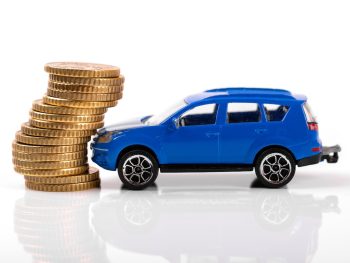EU threatens to hike tariffs by extra 38% on Chinese EV imports
Brussels has unveiled provisional plans to impose extra duties on battery electric vehicles (BEVs) made in China and exported into the European Union from July in a move that could add thousands of euros to the cost of cars.

The EU said “subsidised Chinese imports at artificially low prices” presented a “threat of clearly foreseeable and imminent injury to EU industry”
The European Commission said it would levy additional tariffs, ranging from 17.4% to 38.1%, on top of the existing tariff of 10% in a move to redress a distortion of competition due to subsidisation.
The announcement comes a month after the US revealed plans to increase import duties on Chinese-made electric vehicles from 25% to 100% from 1 August, and follows a nine-month investigation by the Commission into “unfair” subsidisation by the Chinese government into the BEV value chain.
In a statement, the European Commission said: “The provisional findings of the EU anti-subsidy investigation indicate that the entire BEV value chain benefits heavily from unfair subsidies in China, and that the influx of subsidised Chinese imports at artificially low prices therefore presents a threat of clearly foreseeable and imminent injury to EU industry.”
The tariffs will be levied from 4 July, unless China and the EU are able to resolve the issue, and are weighted on whether carmakers cooperated with the investigation and how much support they get from Beijing.
Affected carmakers have been advised of their calculated duty.
Carmakers said to have not cooperated in the probe, such as Chinese giant SAIC, which owns MG, would be subject to a 38.1% additional duty. BYD, which did take part and provided evidence of less state support, would face a tariff of 17.4% on models such as the Atto 3 and Dolphin. Volvo owner Geely would be subject to a 20.0% average duty.
Other manufacturers who cooperated but were not sampled, which includes most, would be subject to 21%.
The tariffs would also hit cars that European and overseas automakers produce in China for European consumers. Tesla, which produces its Model 3 in Shanghai for the European market, would be subject to the 21% level but may have its own individual rate calculated at a later date. BMW, Volkswagen, Mercedes and Dacia, owned by Renault, would also be hit by a 21% rate.
Analysis by EV research house Rho Motion shows that in 2023 just shy of half a million EVs sold in the EU were imported from China, making up nearly one-third of the total EVs bought.
Of the vehicles imported last year, 79% were from Western brands, predominantly Tesla, which accounted for over half of all the BEVs imported but with significant volumes also from manufacturers such as Geely-owned Volvo and Dacia. A further 15% of imports can be attributed to MG which, while fully owned by China’s SAIC, has brand heritage in the European market. Excluding those mentioned, the remainder made up just over 6% of EV imports into the EU last year.
Recent analysis from Rho Motion concluded that many of these Chinese-only brands such as BYD, MG and Great Wall Motors with scaled production in China have brought down production costs significantly. These low production costs allow additional profits of between 25% and 45% to be achieved over and above that already achieved in China, when operating logistics at scale in Europe.
According to Rho Motion, the lower tariff levels will bring these manufacturers’ profits more in line with those achieved by European brands in the longer term, while likely not eliminating the profit margins completely. However, the higher levels of nearly 40% will be harder to overcome, particularly hitting MG whose low-priced models have been extremely popular among European consumers.
Will Roberts, head of automotive research, commented: “European drivers are crying out for affordable EVs and with the news today of sales plateauing in Europe, lower-priced cars will be critical to achieving the transition as planned. Having said that, Chinese manufacturers should be able to absorb some of these lower tariff levels into their padded profit margins.
“The true test from today’s announcement will be whether Beijing will retaliate in kind, or come to an amicable solution. Europe’s manufacturers still rely on the Chinese market, so declining profits from the East would only slow their ability to transition effectively.”
Tariffs ‘might buy time, but won’t reverse the threat to EU competitiveness’
CLEPA – the European Association of Automotive Suppliers – said tariffs might buy the EU time, but wouldn’t reverse the threat to competitiveness.
Benjamin Krieger, secretary general, stated: “The European Commission is right to be concerned about the competitiveness of the EU as a manufacturing hub and the challenges posed by Chinese manufacturers, but tariffs can only provide a temporary respite and bear the risk of retaliation.
“Global trade requires a level-playing field and may necessitate corrective measures. However, protectionism cannot be the answer to restoring European competitiveness. Consolidated efforts are needed to make the EU attractive again for investment.”
The industry body says Europe’s main challenge is not a lack of innovative capacity but rather high energy costs, regulatory incoherence, and limited access to capital and public funding, which increasingly lead to innovations being manufactured abroad.
And it’s warning that instead of relying on protectionist measures that could hamper European companies’ access to crucial markets, EU policymakers should focus on making the EU more competitive.
EU carmakers themselves are also concerned over retaliatory measures. China already applies 15% tariffs on European EVs.
The European Automobile Manufacturers’ Association (ACEA) said free and fair trade meant guaranteeing a level playing field for all competitors, but warned that it was just one important part of the global competitiveness puzzle.
“What the European automotive sector needs above all else to be globally competitive is a robust industrial strategy for electromobility,” stated ACEA director general, Sigrid de Vries.
“This means ensuring access to critical materials and affordable energy, a coherent regulatory framework, sufficient charging and hydrogen refilling infrastructure, market incentives, and so much more.”
And the Verband der Automobilindustrie (VDA), which represents Germany’s car industry, said any protectionist measures “harbours the risk of trade conflicts that are ultimately detrimental to all sides”.
“The potential damage that could be caused by the measures now announced may be greater than the potential benefits for the European – and in particular the German – automotive industry,” said VDA president Hildegard Mueller.
The final word comes from Ian Plummer, commercial director of UK online automotive marketplace Auto Trader, who said: “The European Union’s decision to impose tariffs on Chinese electric vehicles is disappointing, and we hope the UK isn’t tempted to take similar action.
“UK drivers already face a lack of affordable choices when it comes to electric cars, so it doesn’t make sense for us to limit those options even further for consumers. We need to bring more buyers into the market by cutting down the ‘green premium’ which means EVs are usually 35% more expensive than diesel or petrol cars. We’ll only do that with open competition to foster innovation, not by reducing choice for consumers.
“Chinese entrants are already partnering with UK retailers to deliver a quality, affordable product and they will have an important role to play in the UK’s ongoing transition to electric vehicles.”


